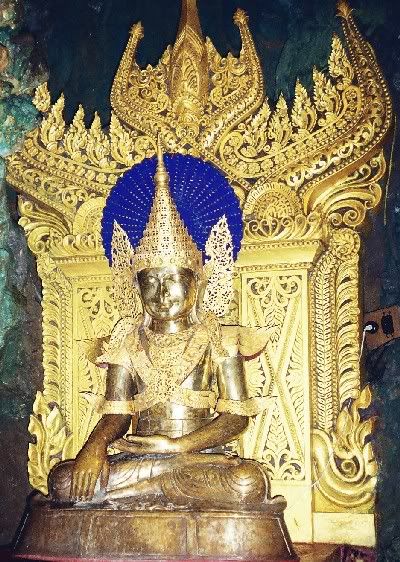
O Budismo na Birmania, e' a fundacao sobre a qual assenta a cultura birmanesa, sendo tambem em muitos casos o refugio que alimenta o corpo e fornece a unica alternativa 'a educacao que em varias alturas da historia recente esteve interdita pela ditadura, com a desculpa de evitar revoltas.
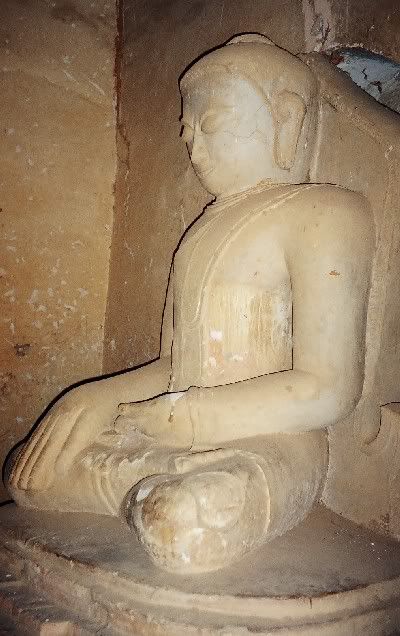
"According to many Buddhism Experts, Burma, the land of pagodas, is the only country in the world where Theravada Buddhism flourishes most and also the only country in the world where there are Pali Athakathas and Tikas completely published. (...) There are fifty two thousand monasteries, over one thousand monastic institutions (Colleges) and two State Pariyatti Sasana Universities (Yangon / Mandalay) plus the newly-opened International Buddhist Missionary University . There are also sixteen hundred thousand Bhikkhus and twenty five thousand novices and more than five hundred Meditation Centres. Myanmar had been twice blessed by the holding of the last two International Theravada Buddhist Councils (Synods). Tipitakadhara examination, another unique feature, ( to memorize and recite 8025 pages of the Tipitaka) has been held annually for many decades and so far six bhikkhu candidates have passed both oral and written parts."
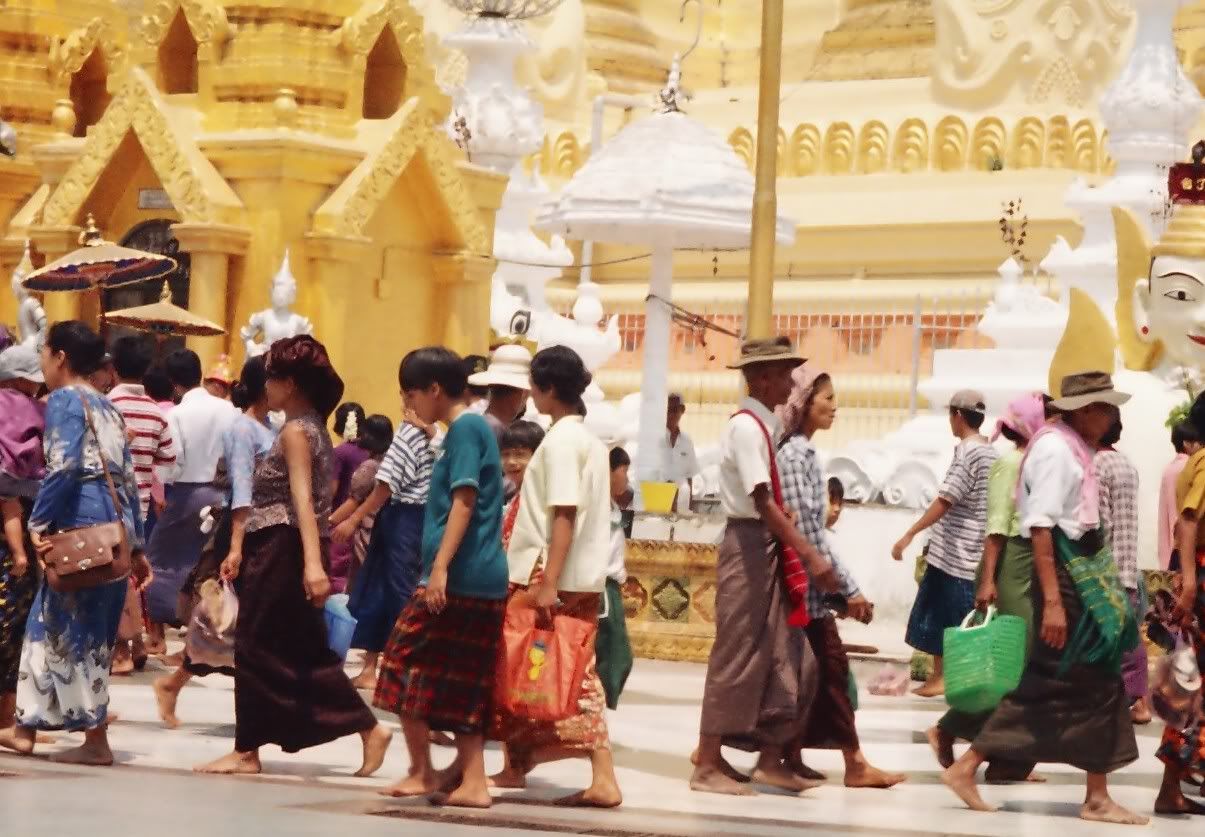
"The monks set out each day at first light with their alms-bowls and wander silently through the village or town collecting the food for the day. On returning to the monastery they will share the food and usually eat communally finishing their meal - for some monks their only meal - before miday."
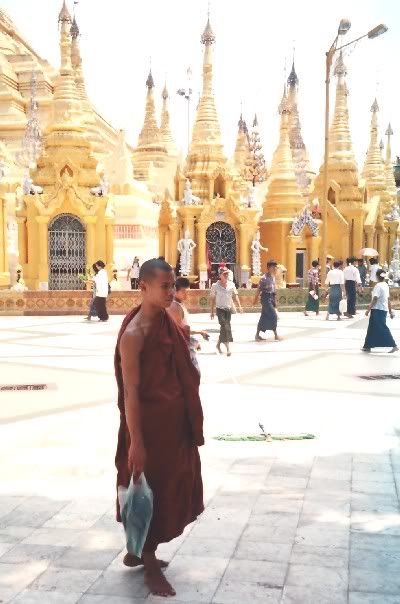
"Every country or every race has its own moral culture, which is the characteristic of that country or that race. As for Myanmar, it has its own culture, which is based on Buddhism."
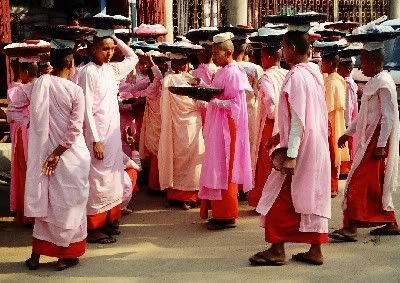
"Since a monk gets his daily food from such regular alms-round and because he does not partake of anything after noon, he needs no money for shopping in the market; he needs no other utensils to prepare and cook his food. He has no means of storing food for the next day either. Thus he is free from all the troubles in connection with food. If only he has a bowl to put the alms in, and if only he is healthy and strong enough to go out in the morning to receive the offertories from the devout families, then he gets enough food to sustain himself for the day. The food he receives is well cooked and usually the best part of the meal. So a monk has nothing to do with kitchen work and recipe collection or menu itemization."

Artigos sobre a influencia do budismo na Birmania, aqui, aqui ou aqui.
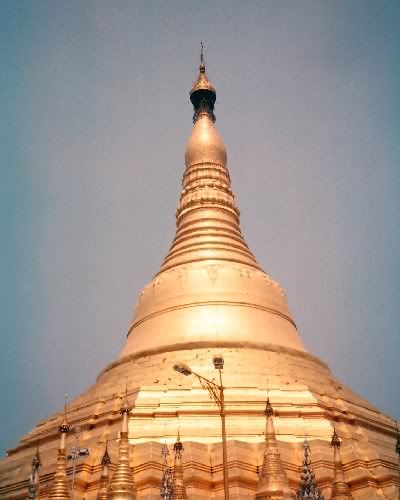
photos by Nic at Rangoon, Burma - Apr.1998
No comments:
Post a Comment